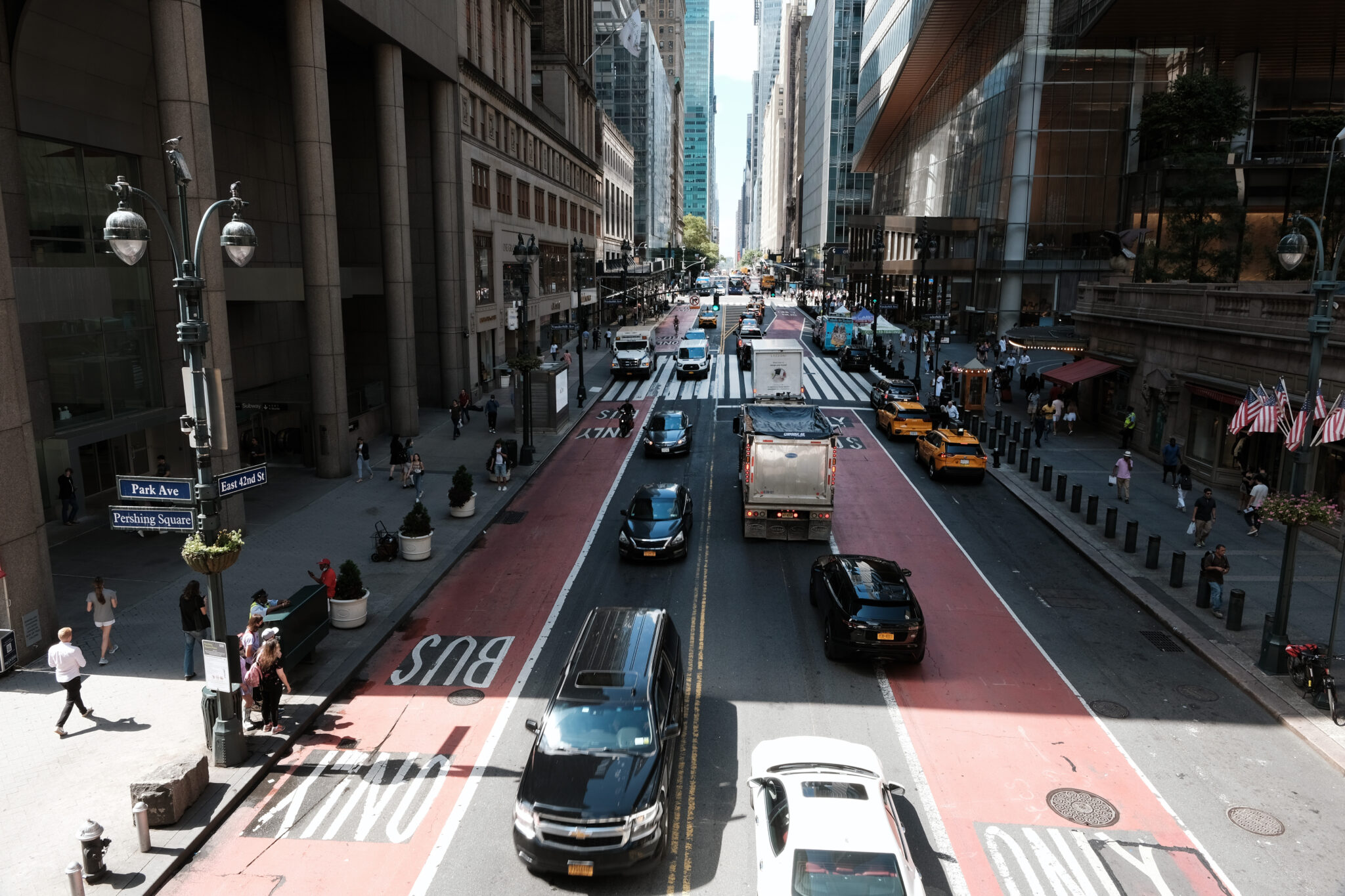 Federal officials last week greenlit New York’s congestion pricing plan, allowing the state to move forward with its proposal to charge drivers a fee to enter certain parts of Manhattan in an effort to reduce traffic congestion, improve air quality and boost public transportation. If successfully implemented, New York would become the first state to impose such a toll, potentially laying out a blueprint for other states or cities that want to reduce tailpipe emissions and raise funds for programs that help address climate change and other environmental issues.
Federal officials last week greenlit New York’s congestion pricing plan, allowing the state to move forward with its proposal to charge drivers a fee to enter certain parts of Manhattan in an effort to reduce traffic congestion, improve air quality and boost public transportation. If successfully implemented, New York would become the first state to impose such a toll, potentially laying out a blueprint for other states or cities that want to reduce tailpipe emissions and raise funds for programs that help address climate change and other environmental issues.State lawmakers had approved New York Metropolitan Transportation Authority’s congestion pricing plan back in 2019. Proponents said the plan would raise $1 billion every year for public transportation. But the proposal was delayed for years by the Trump administration, which had been butting heads with then Gov. Andew Cuomo and was able to intervene because the project would place tolls on highways that received federal funding.
The Biden administration has since agreed to review the proposal. And on Friday, the Federal Highway Administration released its draft assessment, finding the project would have “no significant impact” on the environment. The proposal will now be open to public comment for 30 days.
New York Gov. Kathy Hochul’s administration praised the announcement as “a critical step” for the plan, which many officials have argued is necessary for New York to achieve its ambitious climate goals. “If we’re going to fight the climate crisis, we’ll need congestion pricing and we’re going to need it quickly,” former New York City Mayor Bill de Blasio said back in 2021.
Friday’s news also comes just days after Gov. Hochul, along with her fellow Democrats, unveiled a state budget that includes measures that would ban natural gas hookups in new construction and establish a cap-and-invest program—a type of carbon market meant to reduce emissions and raise funds for climate efforts.
New York’s congestion pricing proposal could be particularly useful in the effort to slash state carbon emissions by 85 percent from 1990 levels by 2050, as mandated by the state’s landmark climate law. Transportation accounts for about 28 percent of the total greenhouse gas emissions for both the state and New York City, making it the second leading contributor to climate change behind emissions from buildings.
In fact, New York City’s public transit system—widely considered the most robust in the nation—reduces the metropolitan area’s annual greenhouse gas emissions by nearly a third, according to the MTA, slashing some 17 million metric tons of carbon dioxide from the transportation sector every year. “New Yorkers have the lowest carbon footprint per capita among the 50 states,” the agency says on its website. “This is the magic of plentiful public transportation: it benefits those who use it and those who don’t.”
But New York’s transit system faces serious financial challenges—and it’s not the only one. A massive dip in transit ridership all across the United States during the first years of the coronavirus pandemic decimated the budgets for many of the nation’s biggest public transportation systems, including New York City’s MTA. And many of those agencies still face major financial shortfalls, forcing officials to scramble for new revenue sources to prevent service cuts. New York City’s subways have also seen more frequent and severe flooding in recent years due to climate change, adding yet another financial hurdle for the city’s beleaguered transit authority.
In that sense, congestion pricing would not only help New York raise funds for new climate initiatives, but it could also help to maintain one of the city’s most successful climate programs already in place: a healthy public transportation system. Climate activists have also argued that simply switching to electric vehicles isn’t enough to curb the climate crisis and that society must adopt less energy-intensive ways of traveling.
At least two other major global cities—London and Stockholm—have enacted similar congestion pricing plans with notable success. Both cities have reported that their programs have led to significant decreases in traffic congestion and average commute times. In Stockholm’s case, Mass Transit Magazine reports, the program has also led to an increase in public transit use.
But New York’s plan could still run into roadblocks. The proposal will apply only to Manhattan’s Central Business District, but transit authorities continue to negotiate key details, including how much to charge drivers. So far, officials are considering somewhere around $9 to $23 for passenger vehicles and between $12 and $82 for trucks.
The proposal is also getting major pushback from Democrats in neighboring states like New Jersey, where many residents commute to and from Manhattan every day. New Jersey Gov. Phil Murphy, a Democrat, condemned the plan as “unfair,” “ill-advised” and a “money grab,” suggesting that he’ll take legal action to stop it.
Transportation advocates remain hopeful, however.
“Congestion pricing is essential to the health and well-being of the tri-state region,” Tom Wright, president of the Regional Plan Association, a nonprofit focused on improving quality of life in New York, New Jersey and Connecticut, told Mass Transit Magazine. “We applaud the Biden administration, the MTA and Gov. Hochul for advancing this transformative policy and look forward to implementing it in a way that benefits the entire region.”